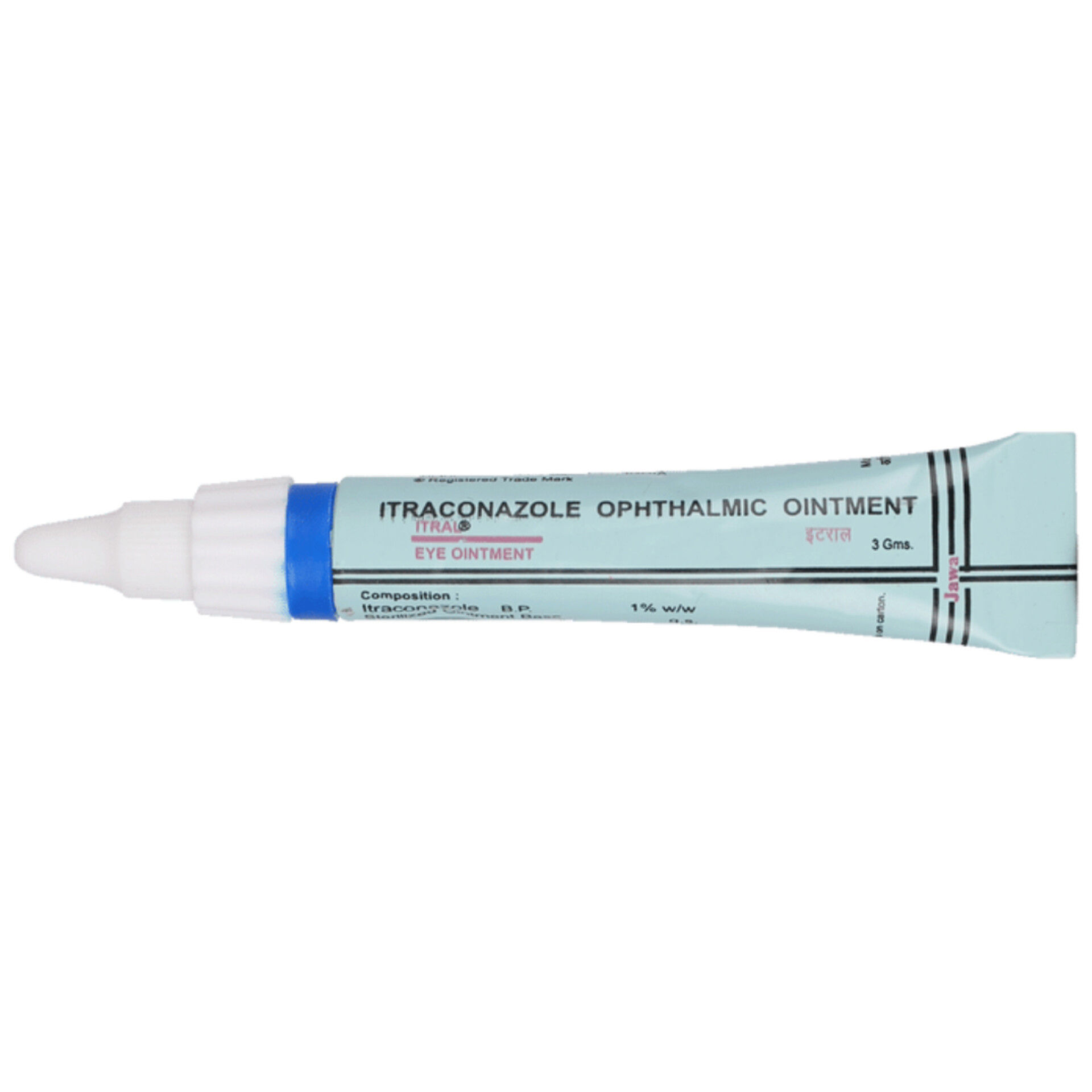Candyzole 1% Cream
₹103.5*
MRP ₹115
10% off
₹97.75*
MRP ₹115
15% CB
₹17.25 cashback(15%)
Free Delivery
With Circle membership
(Inclusive of all Taxes)
This offer price is valid on orders above ₹800. Apply coupon PHARMA10/PHARMA18 (excluding restricted items)
Know Your Delivery Time
Provide Delivery Location

Available Offers
 Prescription drug
Prescription drugWhats That

Secure Payment

India's Most Trusted Pharmacy

Genuine Products
About Candyzole 1% Cream
Candyzole 1% Cream belongs to the class of drugs called antifungals used in the treatment, prevention, and control of fungal infections, flaky discoloured patches on the back and chest and infections in neutropenia (low count of neutrophils, a type of white blood cells) or aids patients. Fungal infection is a skin disease in which a fungus attacks the tissue and causes infection. Fungal infections may be contagious (spread from one person to another).
Candyzole 1% Cream contains Itraconazole which works by destroying the fungal cell membranes that are essential for their survival as they prevent the entry of unwanted substances into the cells and stop the leakage of cell contents. Thus, kills fungi and clears the fungal infection.
Candyzole 1% Cream is for external use only. Use Candyzole 1% Cream as prescribed by your doctor. You are advised to use Candyzole 1% Cream for as long as your doctor has prescribed it based on your medical condition. Some people may experience an itchy skin rash, redness, or burning sensation of the skin. Most of these side effects of Candyzole 1% Cream do not require medical attention and gradually resolve over time. However, if the side effects persist or worsen, please consult your doctor.
If you are using any other topical medicines, inform your doctor before starting Candyzole 1% Cream so that the dose may be adjusted. If you are allergic to Itraconazole or any other medicines, please tell your doctor. Avoid contact of Candyzole 1% Cream with nose, mouth, or eyes as it may cause irritation. In case Candyzole 1% Cream comes in contact with these areas accidentally, rinse with water thoroughly. If you are pregnant or a nursing mother, it is advised to consult a doctor before using Candyzole 1% Cream.
Uses of Candyzole 1% Cream
Directions for Use
Medicinal Benefits
Candyzole 1% Cream contains Itraconazole, an antifungal used in the treatment, prevention, control, and improvement of fungal infections, flaky discoloured patches on the back and chest, and infections in neutropenia (low count of neutrophils, a type of white blood cells) or aids patients. It works by destroying the fungal cell membranes that are essential for their survival as they prevent the entry of unwanted substances into the cells and stop the leakage of cell contents. Thus, kills fungi and clears the fungal infection.
How Candyzole 1% Cream Works
Storage
Side Effects of Candyzole 1% Cream
- Itchy skin rash
- Redness or burning sensation of skin
What if I have taken an overdose of Candyzole 1% Cream
Drug Warnings
If you are using any other topical medicines, inform your doctor before starting Candyzole 1% Cream so that the dose may be adjusted. If you are allergic to Itraconazole or any other medicines, please tell your doctor. Avoid contact of Candyzole 1% Cream with nose, mouth, or eyes as it may cause irritation. In case Candyzole 1% Cream comes in contact with these areas accidentally, rinse with water thoroughly. If you are pregnant or a nursing mother, it is advised to consult a doctor before using Candyzole 1% Cream.
Diet & Lifestyle Advise
- Regularly change your socks and wash your feet. Avoid shoes that make your feet sweaty and hot.
- In wet places such as changing rooms and gym showers, don’t walk barefoot to prevent fungal infections.
- Do not scratch the affected area of the skin as it can spread the infection to other body parts.
- Avoid sharing towels, combs, bedsheets, shoes, or socks with others.
- Wash your bed sheets and towels regularly.
Habit Forming
Therapeutic Class
Candyzole 1% Cream Substitute

Itral Ointment 3gm
₹68.27per tabletXerofung 1%W/W Cream 15gm
by AYUR
₹12.90per tabletI-Cute Soap 75 gm
by AYUR
₹1.98per tabletScania 1% Soap 75 gm
₹2.03per tabletLecizorb Powder 75 gm
by AYUR
₹2.34per tablet
Product Substitutes
Alcohol
Caution
Interaction of Candyzole 1% Cream with alcohol is unknown. Please consult a doctor before consuming alcohol while using Candyzole 1% Cream.
Pregnancy
Caution
Candyzole 1% Cream is given to pregnant women only if the doctor thinks the benefits outweigh the risks. Therefore, if you are pregnant or planning for pregnancy, please consult a doctor.
Breast Feeding
Caution
The excretion of Candyzole 1% Cream in breast milk is unknown. Candyzole 1% Cream should be used with caution in breastfeeding mothers. Do not apply Candyzole 1% Cream directly on the breast while breastfeeding. Please consult a doctor if you have any concerns.
Driving
Safe if prescribed
Candyzole 1% Cream usually does not affect your ability to drive or operate machinery.
Liver
Caution
If you have any concerns regarding the use of Candyzole 1% Cream in patients with Liver problems, please consult a doctor.
Kidney
Caution
If you have any concerns regarding the use of Candyzole 1% Cream in patients with Kidney problems, please consult a doctor.
Children
Caution
Please consult a doctor before using Candyzole 1% Cream for children.
FAQs
Country of origin
Manufacturer/Marketer address
Disclaimer
Author Details
We provide you with authentic, trustworthy and relevant information


















